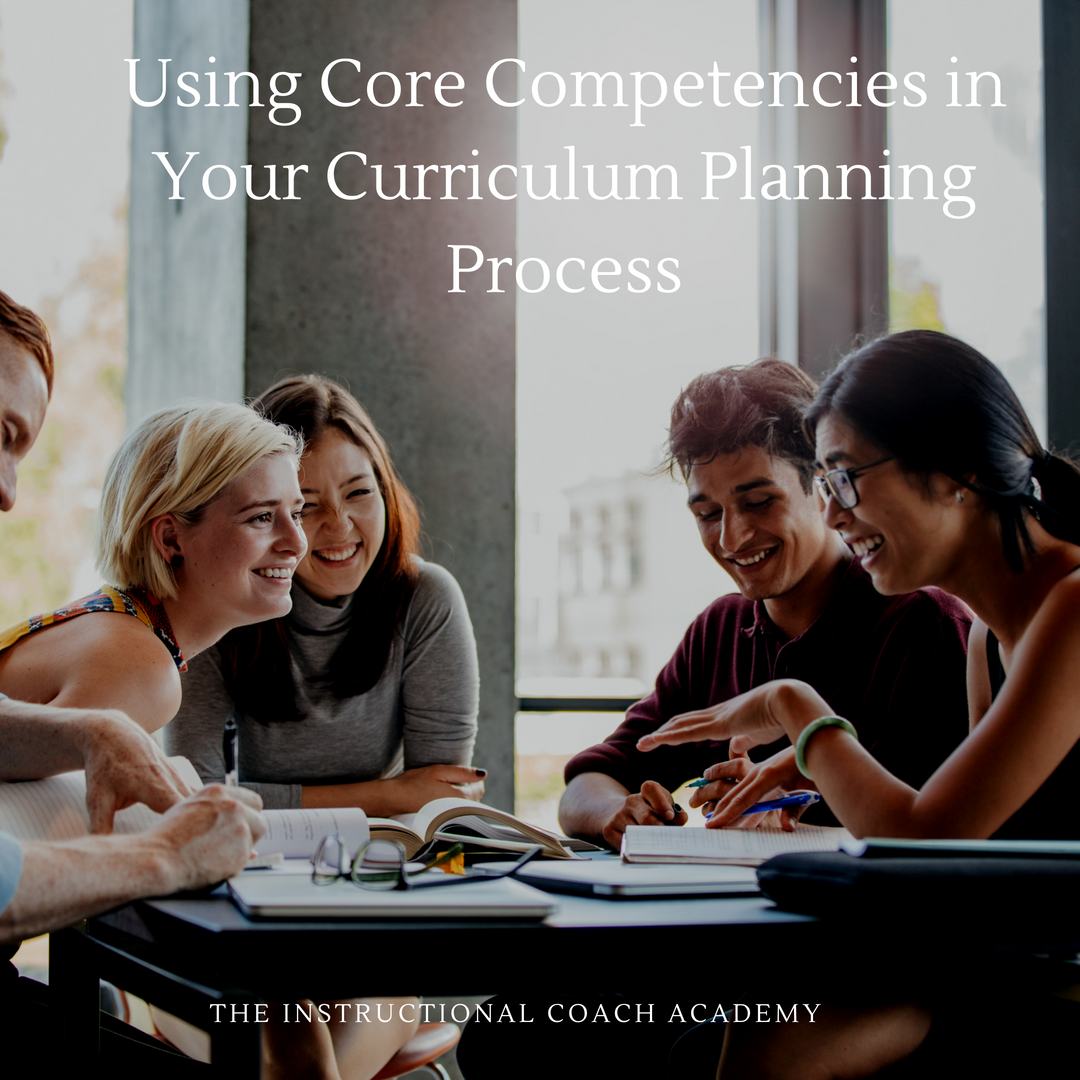Core competencies in business are typically “soft skills.” Core competencies in academics have potential too. This year, I have the opportunity to facilitate curriculum writing through the lens of core competencies.
I define core competencies as the 10-15 essential skills a student can expect to master during a course. These should be meaningful and transferable skills aligned to relevant state standards. In addition, they should be written in language students are able to comprehend on the first day of class.
Each core competency is broken into component skills that are more content specific and might use subject-specific language that may need to be explicitly taught. Component skills are necessary for mastery of the core competencies.
The process of crafting core competencies is different from many other curriculum writing exercises with which I am familiar. Though I premised this format on backward design, some teachers have opted to work inductively based on their existing knowledge of curriculum to establish core competencies.
Teachers have been given the opportunity to collaborate and develop, either inductively or deductively, a deep understanding of what students will learn.
It has been an interesting process to facilitate so far. Teachers are demonstrating remarkable thoughtfulness and consistent open-minded thinking as they design a curriculum that meets the needs of our students.
By focusing on skills, we have been able to avoid content arguments and the inevitably imprecise language of state standards. Instead, we are talking about what we want students to be able to do and why. We are engaged in a dialogue about what proficiency means and what skills will equip students for their chosen futures.
In addition to consensus and standards alignment, teachers in each subject area will also be required to come to a genuine consensus on the core competencies for all courses in their field.
I wouldn’t call this a tedious process…meticulous perhaps. The teachers have become deeply engaged and are questioning what they teach and why.
I doubt most instructional leaders have are able to devote the kind of time to this process that I am incredibly lucky to have. Nonetheless, I believe that spending more on the conceptual end of curriculum development has several significant positive impacts:
- Teachers develop a deeper understanding of what they are teaching and why.
- A culture of collaboration.
- Well-defined, flexible, and meaningful curriculum.
- Students held at the center of the curriculum process.
- Teachers are treated as professionals and experts.
- Alignment is increased within courses, across courses, and across teachers and sections.
I think core competencies have the potential to help leaders manage the curriculum writing process in a meaningful, effective way.


